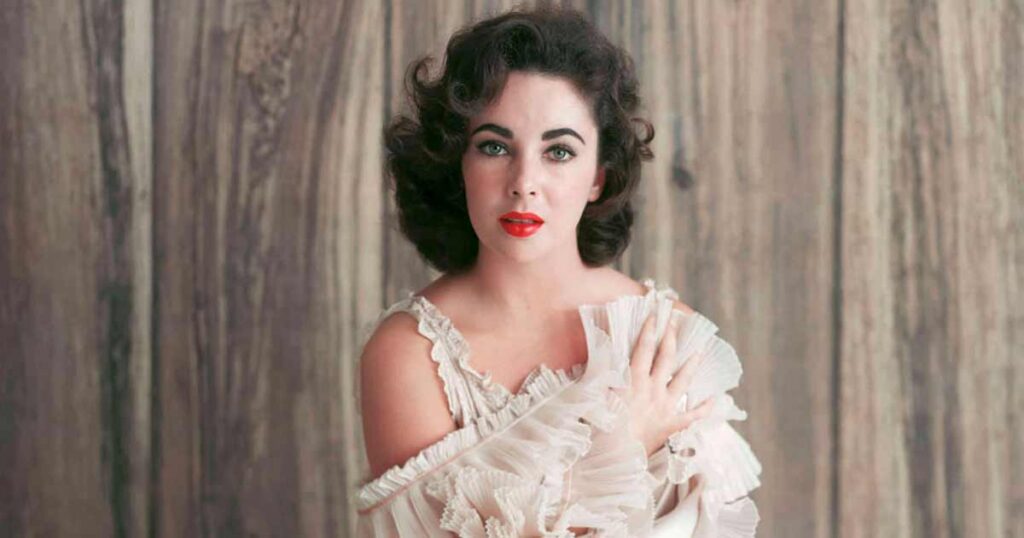
Yes, four times. And one of those times, she didn’t breathe for five whole minutes. “Must be a record,” she joked. Taylor’s health scares were as dramatic as her career, and by the time she sat down to talk about Cleopatra for Vanity Fair, she had turned her brushes with death into part of her iconic narrative.
One of Taylor’s most terrifying health crises occurred in March 1961. Battling what her doctors called “Asian flu,” Taylor slipped into a coma in London. It could’ve been the end. But Taylor being Taylor, she not only came back from the brink—she did so with flair. Upon waking in her hospital room, she found herself surrounded by flowers, fan mail, and glowing newspaper obituaries. “I had the chance to read my own obituaries,” she asserted with a wry smile. “They were the best reviews I’d ever gotten.”
This moment of morbidity turned into a career highlight when she received what she called a “sympathy Oscar” for her performance in Butterfield 8. Though she believed her performance in Suddenly, Last Summer deserved the Oscar more, Elizabeth Taylor wasn’t about to pass up the golden statue.
By the time of her near-fatal illness, she was already a tabloid favorite, with the press dragging her for her love life just weeks earlier. At just 29, she was already on her fourth husband—Eddie Fisher, whom she famously “stole” from Debbie Reynolds. Yet, in a testament to Taylor’s charm and resilience, even Reynolds sent her well wishes after her brush with death. The public sympathy softened her image, but this was only the calm before the storm.
The real chaos came in the form of Richard Burton. Taylor’s affair with Burton during the making of Cleopatra created a media frenzy of biblical proportions. The Vatican even condemned her for “erotic vagrancy.” And yet, through all the drama, Taylor soldiered on, with a visible tracheotomy scar—a souvenir from her near-death experience—marking her scenes in Cleopatra.
By the time Taylor was interviewed for Vanity Fair, her reluctance to revisit Cleopatra was understandable. The film was a total nightmare—lawsuits, broken marriages, and public scandals everywhere. Roddy McDowall, who played Octavian and was close to both Taylor and Burton, stayed quiet about the chaos out of loyalty. But McDowall, ever gracious, tried to connect her with Vanity Fair’s Dominick Dunne, and their efforts paid off.
One evening, Taylor finally agreed to speak, and when she answered the phone, she was already in the mood to talk. “You want to talk about le scandale, don’t you?” she said, in reference to her notorious affair with Burton. While she didn’t dive into the messy details, she did clear up one thing: her infamous hospitalization in Rome in 1962 wasn’t from food poisoning as the publicists claimed. She had, in fact, swallowed too many Seconals in a moment of hysteria, needing desperately to “get away.”
That phone call lasted nearly an hour, Taylor’s deep, unmistakable voice carrying through the receiver like a radio transmission from another time. As the conversation came to a close, she summed up that chaotic chapter of her life with signature candor. “It was the most chaotic period of my life. But I also fell madly in love, so it couldn’t have been all bad,” she said. And with that, she signed off, “O.K., that’s it for me now, time to go. I’m all dried up.”
For Elizabeth Taylor, near-death wasn’t the end—it was just another act in her larger-than-life story.
Follow Us: Facebook | Instagram | Twitter | Youtube | Google News

